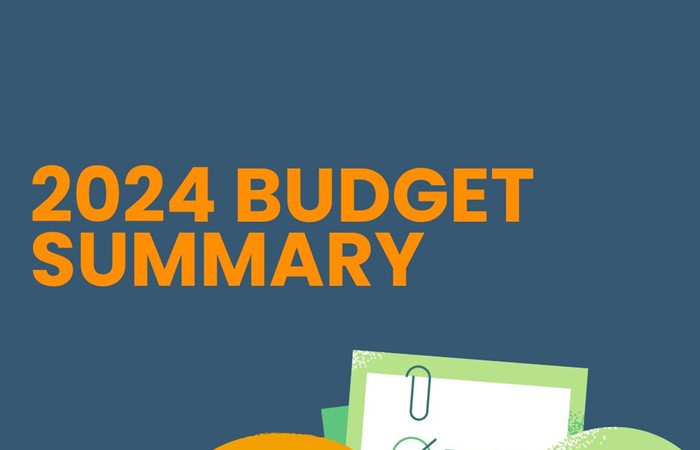31 October 2024
Budget 2024: Key Takeaways
The recent budget brought in by Chancellor Rachel Reeves has sparked a lot of discussion, with significant tax changes and government spending cuts designed to reshape the UK economy. With low-income households and those on benefits facing rising living costs, here’s a look at the budget's most relevant points and how they may impact your finances.
National Insurance and Employment
One of the biggest changes is the increase in the employer’s National Insurance contribution, set to rise from 13.8% to 15% in April 2025. Additionally, the threshold for these payments will be lowered from £9,100 to £5,000. While this change primarily affects employers, it may influence job opportunities, wage adjustments, or even pricing for goods and services.
Minimum Wage Increases
For those working on minimum wage, the budget brings some good news. The National Living Wage (for those over 21) will increase by nearly 7%, moving to £12.21 per hour. For younger workers, the minimum wage will rise by 16.3%, to £10 an hour. While the rise may help low-income earners cope with inflation, the knock-on effect of tax changes could still mean a squeeze on overall income.
Key Tax Changes
While there are no direct income tax increases for working people, the freeze on income tax thresholds continues, meaning people could gradually pay more in tax as wages rise and they move into higher tax bands. For those earning extra through capital gains (such as selling assets or investments), the capital gains tax rate has increased, which might impact those who depend on small investments to supplement their income.
For low-income households, these tax adjustments highlight the importance of careful budgeting to manage any additional expenses, particularly if costs rise elsewhere.
Cost of Living Support and the NHS
In terms of support services, the budget brings a boost to the NHS, with an additional £22.6bn for healthcare services and £3.1bn for infrastructure improvements. The intent is to ensure quicker access to services and to alleviate some of the strain on waiting times. While this isn’t a direct financial boost to households, it aims to improve public services that many rely on. Additionally, an extra £5bn will go into housing, which could help lower-income families access affordable homes.
Pension and Carer’s Allowance
For pensioners, the triple lock on pensions will continue, ensuring the state pension rises in line with the highest of inflation, earnings growth, or a fixed rate of 2%. This means a 4.1% increase next year, which could provide a modest income boost for pensioners facing cost pressures.
Carers also received attention, with the earnings threshold for Carer's Allowance increasing. This could allow carers to work a few more hours without affecting their allowance, helping those balancing employment with caring responsibilities to manage their finances better.
Practical Steps for Budgeting
If you’re on a low income or benefits, managing finances in light of these changes will be essential. Here are some tips to help make your money stretch:
Track Expenses: Make a list of regular outgoings and see where you might save, especially if energy and food prices are rising.
Consider Savings Accounts: Setting aside a little each month into a protected savings account can create a safety net, especially with unpredictable bills and costs.
Seek Ethical Lending Options: If you’re considering a loan, look into ethical lenders like Boom Community Bank. We offer smaller, affordable loans designed with realistic repayment terms.
Stay Informed on Benefits: Make sure you're receiving all the benefits you’re entitled to and explore local schemes for help with food, energy bills, or housing costs.
While the budget brings challenges, there are resources and strategies to support low-income households in navigating these changes. By staying proactive, you can adjust your financial plans to help keep you and your family secure as new measures come into effect.
Check out our budget planner.











